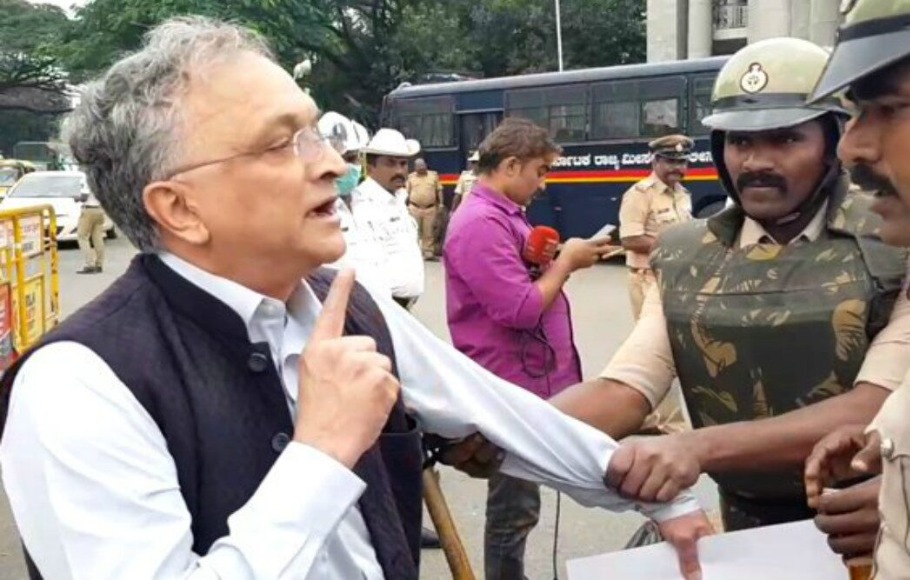
On 'immoral' CAA, Ramachandra Guha asks why Lankan Tamils excluded
Noted historian Ramachandra Guha on Sunday voiced his dissent on the CAA, weeks after he was detained during anti-CAA protest in Bengaluru. In an article on Hindustan Times, Guha termed the Act as “manifestly immoral” and accused it of singling out one particular religion for “particularly spiteful treatment”.

Noted historian Ramachandra Guha on Sunday (January 12) voiced his dissent on the Citizenship (Amendment) Act (CAA), weeks after he was detained during anti-CAA protest in Bengaluru. In an article on Hindustan Times, Guha termed the Act as “manifestly immoral” and accused it of singling out one particular religion for “particularly spiteful treatment”.
The CAA, he wrote, is “plainly illogical” and raised concerns why Sri Lankan Tamils, most of whom are Hindus, are not being left out of the new law’s purview. He further questions the timing of the amended legislation, pointing out that it comes close to the heels of bifurcation of the erstwhile Jammu and Kashmir state and the Supreme Court’s Ayodhya verdict.
“The downgrading of Jammu and Kashmir and the building of a temple in Ayodhya were issues of enormous symbolic importance to the BJP. One could understand why a second successive majority in the Lok Sabha emboldened the Modi government to act quickly in these matters,” wrote Guha in the article.
Also read | CAA made world aware of religious persecution in Pakistan: Modi
On the timing of the law, he further pointed out to the current economic situation of the country, which he said was in a “mess”. “Why then was it (CAA) given such a high priority?” he asked. And he also furnished two possible reasons behind the quick passage of the Bill in the Parliament — bigotry and hubris.
“The first is bigotry, the ideological compulsion to rub it in even further to the Muslim citizens of the Republic that they live here on the grace or mercy of the Hindu majority. The second is hubris; the sense (or delusion) that since the Muslims of India did not offer any dissent at the abrogation of Article 370 or at the court verdict concerning Ayodhya, this time, too, they would meekly accept this wanton humiliation heaped on them by their own government,” the article read.
Terming the new law as a “dangerous piece of legislation”, he recalled when the Union government and the home minister had “repeatedly made it clear” that the CAA and the National Register of Citizens (NRC) would be implemented in conjunction. This, he wrote, triggered a fear among the Muslims that this “twin pincer operation” would leave them in a vulnerable position.
Also read | CMs escalate demand for CAA repeal even as Shah refuses to budge
Guha also underlined the international coverage that the anti-CAA and anti-NRC protests have garnered, which he said has been “uniformly negative”. “The Act has been seen everywhere for what it is — a discriminatory piece of legislation. For many decades, India was praised as a pluralist beacon in a sea of majoritarian States in South Asia. No longer,” he wrote.
Further, he wrote, the country is now being seen as one driven by the interests of a religious majority. “That the government has responded to the protests so harshly, has only further corroded the country’s international reputation. Even friendly countries like Israel issued an advisory to their citizens not to travel to India,” he wrote.
Calling CAA illogical, immoral and ill-timed, he wrote the law has taken a toll on India’s image in the world, and “perhaps to the prime minister’s image and legacy, too”.


